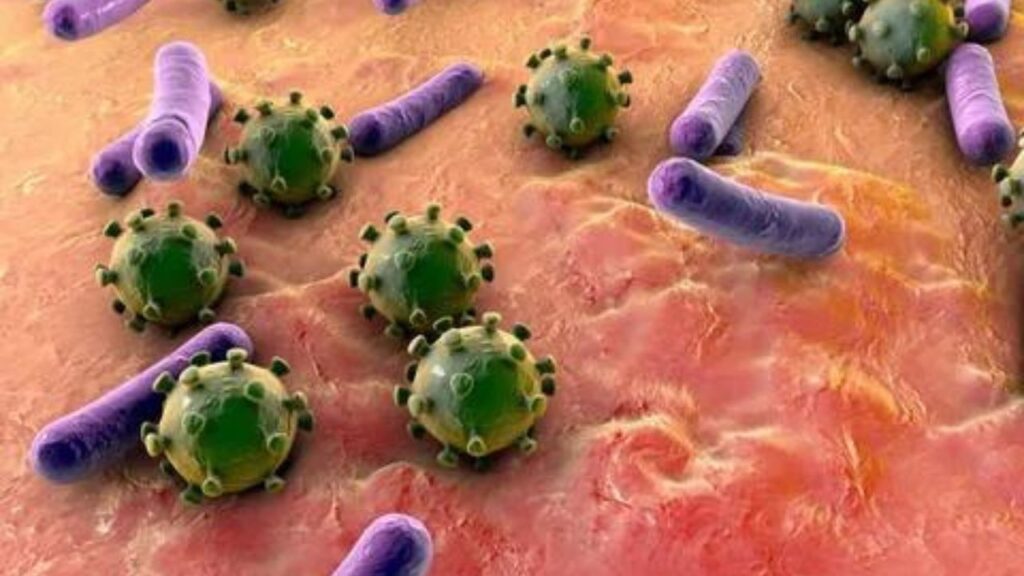
Although getting a new puppy and bringing it home may be an exciting and happy occasion, some worries can be involved, particularly if your pet begins to show symptoms of sickness. Puppy vomit is a frequent problem that many puppy owners deal with. Even though this behaviour might be frightening, knowing the possible reasons to protect your puppy’s health and well-being is important. In this in-depth article, we’ll examine the several causes of your puppy’s food vomiting, along with practical fixes for the problem.
Understanding Normal Digestive Behavior in Puppies
Understanding the fundamentals of a puppy’s typical digestive activity is crucial before exploring the potential causes of his food vomiting. Delicate Puppies’ stomachs are readily disturbed by food changes, stress, or other circumstances, much like adult dogs. Puppies also frequently use their lips to investigate their surroundings, which increases the risk of them consuming strange substances that might upset their digestive systems.
Puppies may need to eat more often throughout the day since they normally have smaller stomachs and quicker metabolisms than adult dogs. Overfeeding, however, might upset their digestive tracts and cause vomiting. It’s critical to pay close attention to your puppy’s eating habits and adhere to the feeding recommendations supplied by your veterinarian.
Common Causes of Vomiting in Puppies
Dietary Indiscretion
Food indiscretion, or consuming anything that doesn’t agree with their stomachs, is one of the most frequent causes of vomiting in puppies. Table crumbs, damaged food, and alien things like toys or household goods might all fall under this category. Due to their innate curiosity, puppies may taste or chew on strange items to learn more about their environment, which raises the possibility of gastrointestinal distress.
Rapid Eating
Puppies are known for their eager eating habits, frequently finishing their food too soon. Eating quickly might cause excessive air to be inhaled, which can lead to bloating discomfort and possibly vomiting soon after. You may assist your puppy in avoiding gastrointestinal problems by slowing their feeding rate and using puzzle feeders or slow-feed bowls.
Food Allergies or Sensitivities
Dogs are susceptible to food allergies and dietary sensitivities just as people are. Wheat, maize, soy, and certain proteins like chicken or beef are common allergies. Consistent vomiting after meals might indicate that your dog is reacting negatively to anything in his food. Adopting a veterinarian-recommended hypoallergenic or restricted-ingredient diet can facilitate the identification and treatment of food allergies or sensitivities.
Parasites or Infections

Gastrointestinal problems, such as vomiting, diarrhoea, and abdominal discomfort, can be brought on by intestinal parasites such as roundworms, hookworms, or giardia. Puppies are especially prone to parasites because they can spread via tainted food, water, or excrement.
Similar to this, vomiting and other symptoms can also be caused by bacterial or viral illnesses, such as canine distemper or parvovirus. If you think your puppy could have parasites or an illness, it’s important to see your veterinarian for a diagnosis and treatment plan.
Stress or Anxiety
Due to their sensitivity, puppies may get stressed or anxious in reaction to various situations, such as adjustments to their surroundings, routines, or social interactions. Relocating to a new house, meeting strange people or animals, or spending a lot of time alone can all trigger stress-induced vomiting. Why puppy is throwing up his food?
In addition to positive reinforcement training methods, creating a secure and cosy environment for your puppy will help ease anxiety and lessen the chance of vomiting.
6Gastric Dilatation-Volvulus (GDV)
Puppies who vomit excessively may have stomach dilatation-volvulus, commonly referred to as bloat. The potentially fatal illness known as gas accumulation-driven vomiting (GDV) is typified by the stomach rapidly expanding and then twisting on its axis.
This ailment has to be treated by a veterinarian very often because if it isn’t, it can cause shock, damage to organs, and even death. Ineffective vomiting, distension of the abdomen, agitation, and dyspnea are symptoms of GDV.
Treatment and Prevention Strategies
Effective management of your puppy’s vomiting problem depends on applying suitable treatment and preventive measures when the underlying cause has been determined.
The following advice can be used to treat and prevent vomiting in puppies:
Consult Your Veterinarian
Why puppy is throwing up his food? Immediately seek veterinarian attention if your puppy is often vomiting or if it is displaying other worrisome signs, including diarrhoea, lethargy, or appetite loss. Based on the underlying reason for the vomiting, your veterinarian can do a comprehensive examination and diagnostic testing and propose the best action.
Adjust Feeding Practices

You might consider giving your puppy smaller, more frequent meals throughout the day to avoid overeating and lower the chance of vomiting. You may also encourage good digestion and slow your puppy’s feeding rate using interactive feeders or slow-feed bowls. To avoid an upset stomach, do not feed your puppy right before or right after intense exercise.
Choose High-Quality Nutrition
Choosing premium puppy food tailored to your puppy’s dietary requirements is crucial for maintaining digestive health and general well-being. Seek goods devoid of artificial additives, fillers, and preservatives and manufactured with natural components. Why is my puppy throwing up his food?
If your puppy develops sensitivities or allergies to certain foods, consider following your veterinarian’s recommendation and switching to a hypoallergenic or restricted-ingredient diet.
Monitor Your Puppy’s Environment
Maintain a clean, safe environment for your puppy without any risks or poisonous materials that can upset its stomach. During playtime, keep a tight eye on your puppy and restrict their access to any little objects or household items that may be swallowed by mistake. Provide people with lots of opportunities for physical and cerebral stimulation to keep them from getting bored and relieve tension.
Promote Stress Relief
Create a regular schedule for your puppy’s eating, exercising, and resting to help reduce tension and anxiety. Give your puppy many chances for socialization and training with positive reinforcement to help them become resilient and self-assured. Establish a cosy and secure area where your puppy may hide from stress or excessive stimulation.
Conclusion
Why puppy is throwing up his food? While a puppy’s occasional vomiting is natural and may not always signify a major health problem, vomiting that persists or occurs frequently should not be disregarded. You can contribute to ensuring your puppy’s health and well-being by learning the possible reasons for their vomiting and putting the right treatment and preventative measures in place.
Remember to speak with your veterinarian for customized counsel and recommendations based on your puppy’s unique requirements. By providing it with the right care and attention, you can foster a happy, healthy life for your puppy.
FAQ
How can I prevent my puppy from eating too fast?
You might also explore using a slow feeder bowl, dividing meals into smaller pieces throughout the day, or including toys or food puzzles that challenge them to work for their food.
When should I seek veterinary care for my puppy’s vomiting?
If your puppy is frequently vomiting, persistently, or severely, or if it is accompanied by other worrisome symptoms like fever, diarrhoea, lethargy, or stomach discomfort, or if your puppy is extremely young or has a weakened immune system, you should seek veterinarian attention.
How can I prevent my puppy from eating things he shouldn’t?
Make sure your puppy can’t access any harmful items in your home, puppy-proof everything, and watch over them closely. Teaching your dog to “drop it” or “leave it” will also help prevent them from ingesting potentially harmful objects.
What should I do if my puppy is throwing up his food?
If your puppy is otherwise healthy and the vomiting is not regular, you may try restricting their food for 12 to 24 hours to help calm their stomach. Next, reintroduce a bland dish, such as cooked chicken and rice, little by little.
If the vomiting persists, if it’s accompanied by other symptoms (such as diarrhea or lethargy), or if your puppy is very young, consult your veterinarian.






